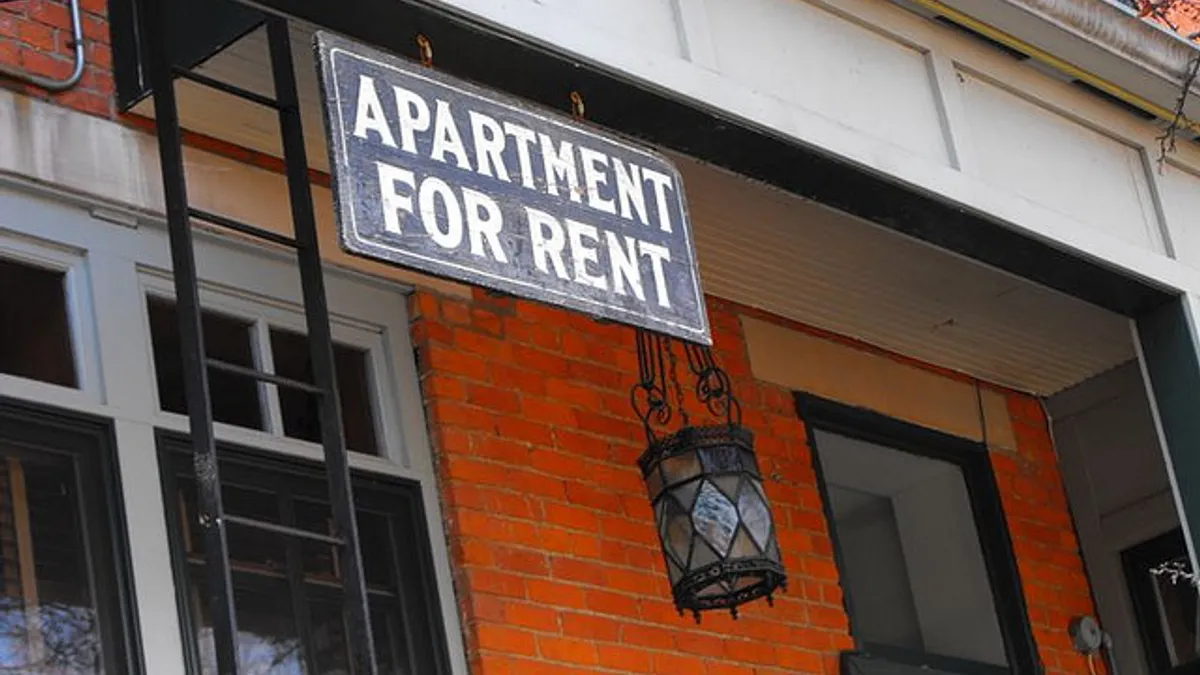Dive Brief:
-
Apartment rents nationwide increased in January, while prices in the country’s largest markets continued to fall, according to a monthly report from online apartment finder Zumper. Median prices for one and two bedroom apartments in the U.S. in January were $1,139 and $1,348, up 0.8% and 0.6%, respectively, on the month prior. Overall, the national median rent was up 2.6% from the year-ago period.
-
Rents for a one bedroom in San Francisco, the priciest market on January’s list, dropped 4% to $3,350 from a year ago. Rents for a one bedroom in New York were down 9.1% on a year ago to $3,000, while rents for a one bedroom in Boston dropped 5.9% to $2,250 for the same period.
- Meanwhile, rents in smaller markets posted big gains. Providence, RI, saw one-bedroom rents jump 14% year-over-year to $1,440 in January. In Kansas City, MO, one-bedroom rents rose 3.8% to $830 in January, and Nashville, TN, saw one-bedroom rents bump up by 4.5% to $1,170 during the month.
Dive Insight:
Although rents in the highest-priced markets, like New York and San Francisco, continue to decline, they are still climbing nationally amid a shift from homeownership as rising home prices driven by a supply shortage are freezing many potential buyers out of the market.
As more people look to rent rather than purchase a home, a supply gap in the rental market has been exposed, putting pressure on availability and edging rental prices higher.
A study published last fall in the Journal of Regional Science highlighted the issue of affordability in the rental market. It noted that from 1970 to 2010, rents increased 28.7% while incomes grew only 13.8%. Meanwhile, the number of renters who spent more than half of their income on rent rose by more than half to 11.4 million from 2001 to 2014, indicating the challenge of home-price increases outpacing wage growth.
In August, real estate website Zillow reported that nearly 14% of renters who can afford a home in their market are choosing to rent instead of buy. This comes as many younger renters delay marriage and having children as compared to previous generations. It is also a consequence of potential-buyers drawn to a market for its job potential and waiting to purchase a home.
For more housing news, sign up for our daily residential construction newsletter.














